Worley: Modern mining for social change
Worley has positioned itself as a front runner in the world of mining. The result is not only more optimised and efficient operations but also a positive impact on mining communities and the environment.
When it comes to technology, Gladwin Mfolo, Business Sector Manager: Mining, Minerals and Metals for Worley RSA, understands that the industry is changing in terms of how mines are built; with a greater focus on their social and environmental impact while at the same time reaching greater depths as they chase underground ore bodies.

“The deeper mines go, the more challenges there are in terms of safety and efficiencies underground. There has been a lot of focus on how we design mines and how we incorporate technology, such as automated dump trucks.
“These will require a lot more infrastructure from an information technology point of view,” he states.
Mfolo explains that technology is driving the way that mines are designed, from both a safety and operational point of view with the former being a key priority.
“For example, we are now able to design automated dump trucks that can detect nearby workers and if necessary, halt operating to ensure the safety of the workforce.”
Worley is ensuring that its designs incorporate such technologies.
However, the company is fully aware that investment in these types of mines is currently scarce, and there needs to be a return on investment, while at the same time creating mines of the future.
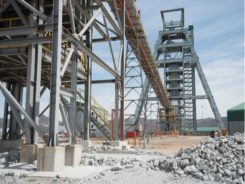
“Our designs incorporate all the technological advances that improve mine efficiency as well as safety; and it is technology that looks not only at current requirements but also at the future of those mines.
“In addition, we want to design mines that can continuously incorporate technologies such as artificial intelligence, data management, machine learning, etc.,” states Mfolo.

Ongoing improvements
The starting point for any technological upgrade begins with designing a mine that makes better use of technology. Worley can help with the operational aspect of a mine, but can also help achieve cost savings, with one example being smart ventilation demand for underground operations.
“We can change the ventilation requirements of the mine by reducing air requirements in areas where there is no demand, thereby reducing operation costs,” explains Mfolo.
Automation is front and centre of Worley’s mine designs. The company uses Smart Plant software to create 3D models of mines, allowing it to determine the various requirements for a site.
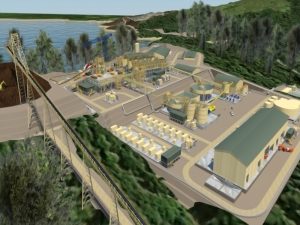 This ensures that it can add or remove certain mine features as and when needed.
This ensures that it can add or remove certain mine features as and when needed.
“The technologies that we look at are used to improve service delivery to a customer and furthermore, it is used to make sure that the design today is much better than what we had yesterday,” says Mfolo.
According to Mfolo, Worley is a leader in this field because rather than just talking about what needs to happen, the company implements these technologically advanced mine designs and ensures that they work.
The company develops the concept and makes sure that it is going to be relevant to the customer by improving safety, efficiencies and reducing operational costs.
For example, Worley is building the world’s first fully automated mine in Australia and Mfolo believes that once this is completed, many miners will learn from this breakthrough.
“We are creating a blueprint for mines of the future. The more the industry recognises that technology brings great benefits, the more mining companies will embrace such technologies,” he adds.

While there is concern that a more automated mine will result in job losses, Mfolo explains that this is not the case. In fact, adopting new technologies create an opportunity to reskill and upskill the workforce.
“In as much as you are implementing automation, etc., you require a whole new skill set. For example, you need people in a control room and you need workers to maintain the software and hardware of the machinery. Even when a machine is automated, it will still need servicing and you need people to carry out these tasks.”
Building a better South Africa
For Worley, executing the development of mining operations is not just about a return on investment for investors. Rather, they need to have a positive impact on the socio-economic wellbeing of the surrounding communities and the country as a whole.
To this end, Worley remains at the forefront of local transformation in South Africa, driven by a genuine intention of creating sustainable change and empowered partnerships.
However, as Mfolo states, transformation is more than just a tick box that improves the company’s B-BBEE standing, but rather it views transformation as an important part of Worley being a good corporate citizen.
He states that the company’s transformation policy is not only about better representation of the majority population, but it is also about creating better female representation in the workplace.
With this in mind, the company is leading its transformation agenda in engineering across the mining sector in South Africa, and recognises that mining is a primary driver for employment and transformation in the country.
Understanding the value of the local market is key to the company’s business strategy as it leverages global expertise and well-entrenched local business to add real value to transformation.
Mfolo says in South Africa transformation is often driven by compliance considerations; however, at Worley the focus is directed on creating the sustainable impact needed to build a better South Africa.
By aligning its services to exceed the requirements of various transformation laws, the company has redefined and positioned its business for success; while simultaneously securing a better future for all enterprises engaged in the organisation’s enterprise and supplier development (ESD) programme.
“An example of this is our B-BBEE level improvement from a Level Four to a Level Two contributor through our continued effort to improve on ownership, management and control, skills development, procurement and supplier development, and socioeconomic development,” explains Mfolo.
Transforming the local economy
Locally, Worley fulfils much of its B-BBEE compliancy through ESD, an initiative that supports meaningful transformation of the South African economy by providing tangible opportunities for small businesses to prosper and expand.
Mfolo believes that the engineering sector and its associated infrastructure has much to gain from this initiative as the company and its ESD partners jointly deliver engineering services in South Africa.
“We expect to see more joint service delivery as the programme expands and our ESD partner companies are exposed to skills transfer and world-class delivery systems.”
Mfolo adds that there are hundreds of development incubators in South Africa but not all have social development programmes aligned with their business strategies.
He believes that a corporate transformation strategy is fundamental to any social development programme, not only to maintain an organisation’s relevance in a changing economic and business environment, but also to ensure benefit to all.
“The Worley ESD initiative is one of the corporate social responsibility programmes in South Africa with real success stories,” says Mfolo, citing an award-winning electrical engineering company as one such example.
Specialising in energy audits and generator installations, this business is now an alumni partner company in the Worley ESD programme.
Enterprise alumni partners are companies that have graduated from the Worley ESD programme and continue to work closely with the company in pursuing work and executing projects.
Keeping the lights on
One of the challenges of mining in Africa is power supply. To this end, Worley is helping customers navigate the complexities of transitioning to decentralised energy supply with its distributed energy systems (DES) global subject matter experts and regional project delivery teams.
Ensuring resilient, reliable and cost-efficient energy for its customers, Worley’s DES solutions take the guesswork out of harnessing and optimising renewable energy, energy storage, and hybrid systems.
As centralised power systems are shown to be less reliable and more carbon intensive, industries in South Africa and across the continent are turning to distributed renewable energy sources to supplement or back up traditional supply.
However, as these renewable energy propositions advance and serve more business-critical loads, they become more complex to design, build, operate and integrate.
This is where Worley’s DES solutions can add significant value: by providing easy, cost-effective optimisation for complicated, multi-streamed energy systems.
As well as providing reliable and cost-effective power solutions for businesses, distributed energy systems can also have positive socio-economic side benefits for emerging economies as businesses offset their carbon footprint by improving the living standards and availability of services to these communities.
“This company’s entrepreneurial journey with Worley has been an amazing success story, and it has grown to over 60 permanent employees and has expanded its business operations as far as sub-Saharan Africa and Australia,” says Mfolo.
At present, Worley has 12 enterprise supplier development partner companies in its ESD programme, with a focus on value-added activities within the South African industry through service-related functions.
“We intend to jointly deliver services in the hydrocarbons, mining, chemicals, power and infrastructure sectors with our ESD partner
companies and we believe that the engineering sector and its associated infrastructure in South Africa has much to gain from this initiative.
Further to this, in 2020, Worley RSA entered into an agreement with Matasis Investment Holdings, which saw Matasis concluding a 35% B-BBEE equity transaction with Worley RSA.
The two businesses are working closely together to provide transformative solutions to the challenges facing southern Africa’s resources, energy and chemicals sectors.
By improving its black shareholding, Worley RSA is now 18.11% black female owned and 10.84% black designated group owned.
Giving back to communities
Worley is also giving back to communities through its various CSI initiatives. For example, the company supports the Billion Child Foundation Programme in Limpopo Province, South Africa.
The foundation was launched in 2011 to address the dire state of global and national education and lack of opportunities for children.
The Billion Child Foundation provides mass training programmes to ensure that children, particularly those within disadvantaged circumstances, receive access to an education so that they can obtain a tertiary education, take up an apprenticeship and gain meaningful employment.
Communities in the rural Vhembe and Capricorn districts situated in the far northern Limpopo province in South Africa experience high levels of unemployment and are faced with the same challenges experienced by many rural communities.
For this reason, Worley, which is assisting De Beers to develop an underground mining operation at its Venetia diamond mine situated 80 km east of Musina, has committed to support the launch of the Billion Child Foundation SA Education Districts Centre of Excellence Programme.
This programme helps to empower school principals to sustainably reinvent their schools to become centres of excellence and develop a high-performance culture.
Worley previously invested in the programme at schools situated near Kathu in the Northern Cape, and within three years the percentage of learners passing maths and English in Grade 7 increased from 39% to 65%, and from 54% to 87% respectively.
In conclusion, Mfolo states that Worley ensures that all its initiatives are sustainable in the long term.
“We want to be a part of the change that we want to see and we have demonstrated this in a myriad ways through our transformation and CSI initiatives.”
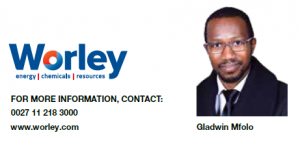
Share this content:













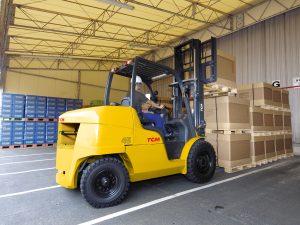
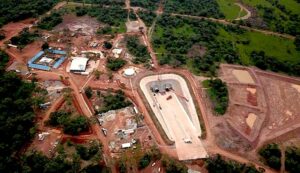
Post Comment